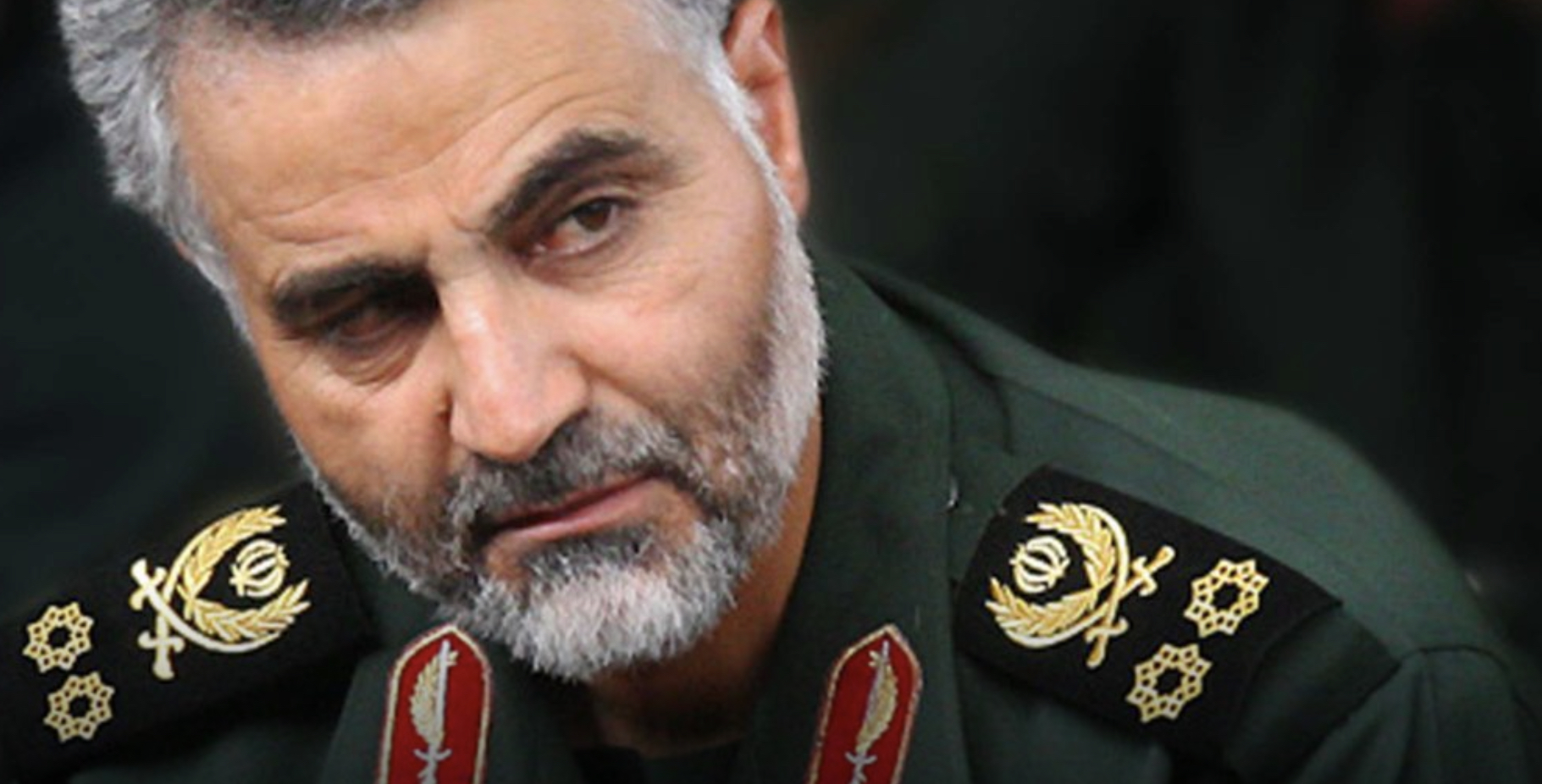
After the United States assassinated General Qasem Soleimani, the rhetoric for war, justifications for the killing, and political to and fro have flooded the media and general conversation. Some have suggested that, in part at least, this was a deliberate move by the Trump administration to distract the American public from Donald Trump's impeachment woes. Regardless, it is important to remember that war is always about people. It is about children, girls and boys, it is about women and men, who will loose their lives and suffer a great deal because of what powerful persons decide to do. In such a climate it is essential that we are discerning and vigilant. We bear a great deal of responsibility for what our 'leaders' do on our watch. We elect them to serve us. As such, we have a responsibility to ensure that we are informed, and that we hold them to account for truth, justice, and what is good and right. I came across this great 'Current Affairs' story, written by Nathan J. Robinson, entitled 'How to avoid swallowing war propaganda.' I have summarised a few of the points below. You can read the original story (which is well worth reading, and sharing)
here.
Here are a few good points to avoid being hoodwinked by propaganda:
1. Things are not true just because a government official (or report) says them (remember GW Bush and the ‘weapons of mass destruction’?) Politicians are dealing with complex agendas. They are seldom only doing one thing. This statement, or this report, may form part of a much larger, lesser known, or less obvious, political agenda.
2. Do not be bullied into accepting simple-minded sloganeering (simply stated, things are never as simple they are made out to be. Populist rhetoric is appealing because it casts very complex issues in overly simplistic ways: Us versus them, good people versus bad people etc.) Friends, even family, will try to bully you with simplistic, inadequate, populist rhetoric. With love, and in grace, refuse to be bullied into accepting half truths or blatant lies, just because they are easy to repeat.
3. Scrutinize, unpack, and understand all of the aspects of the various arguments. Try to see, and understand things, from a variety of perspectives and contexts. What might it feel like to be an Iraqi at this time in history? As an African, I know how it feels to be written off as coming from a ‘shit hole country’, to be viewed with suspicion and mistrust when traveling to the US. Your view of the world, and your take on ‘the facts’ is biased. It is based on your unquestioned convictions, prejudices, and cultural suppositions. Do your best to place yourself in the life and experience of the supposed ‘other.’
4. Keep focussed on what matters. This is important! Our actions, our speech, our perspectives of the world, are all shaped by our values. Work out what it means to be a ‘good person’, or a ‘good society’. Commit yourself to virtues such as justice, compassion, humility, courage, and truth - then keep those as the central focus of your life. Let your decisions, your reflections, and your choices, be shaped by these values and commitments, and not by the shifting ‘facts’, and emerging details, and emotional rhetoric.
5. Remember that emphasis matters - become a student of communication theories and techniques. Don’t just pay attention to what is said, also ask yourself what is not said, or what is said more loudly, or more frequently. Why is this so? Who is saying it? In what settings are they saying things? Communication is manipulative. That is a reality. Become wise and discerning about what is said, how it is said, by whom it is said, how frequently it is said, but also what is not said, who is not being heard, what is being silenced, and why is it being silenced.
6. Imagine how everything would sound if the ‘other side’ said it (or did it!) This relates, in part, to point 3 above. The simple point is that we should not blindly give over our agency to others. Simply because someone is a spokesperson for ‘our side’, it does not make them all virtuous, or all knowing. Scrutinize what is being said, not only for truth, and values, but also for how it may communicate to those who are not part of your group of community.
7. Watch out for euphemisms, metaphors or similes. Forms of speech are powerful tools in propaganda. The Rwandan genocide showed that when we begin to regard human persons as less than human (they spoke of ‘cockroaches’) we can quickly de-humanize them and perpetrate all sorts of abuses. So take care of words like ‘terrorists’, ‘murderers’, and other such terms. Also, be sensitive when your own government uses ‘softer’ or ‘technical’ terms for brutal acts. The killing of persons, and the waging of war, is a deeply personal act for every woman, child and man, who will loose their lives. Never forget that! It is not about policies, or territories, or sound bites. It is about people and what we choose to do to them.
8. Cultivate a memory - remember what people where saying 5 minutes, one day, one week ago. In the online media, 24 hour news cycle, world it is easy to get swept along with only what is said right now. Powerful people and organizations hope that we will forget their previous commitments, statements, and promises. Truth matters and consistency is one measure of truthfulness and justice.
9. Keep an imaginary ‘Noam Chomsky’ on your shoulder. Noam Chomsky is one of the most important linguists of our time, he also happens to be one of the most astute political and social commentators. He understands language, communication (both what is said, and how it is received) and often ‘cuts through’ the noise and manipulation of propaganda to help one see, and hear, what is truly going on. Chomsky will encourage you to avoid ‘spin doctors’, stocking up on ‘partisan news’, and getting too settled or entrenched in your own comfortable commitments. Question everything.
So please, beware! We are dealing with human lives, and the wellbeing of creation here. Make every effort to be discerning, to seek after the truth (even if it is unsettling), and to question the perspectives and positions that you are normally most comfortable with. Most of all, make some value choices - choose to be virtuous and to cultivate the virtues in your thoughts, speech and actions.
 Monday, January 6, 2020 at 7:29AM
Monday, January 6, 2020 at 7:29AM  After the United States assassinated General Qasem Soleimani, the rhetoric for war, justifications for the killing, and political to and fro have flooded the media and general conversation. Some have suggested that, in part at least, this was a deliberate move by the Trump administration to distract the American public from Donald Trump's impeachment woes. Regardless, it is important to remember that war is always about people. It is about children, girls and boys, it is about women and men, who will loose their lives and suffer a great deal because of what powerful persons decide to do. In such a climate it is essential that we are discerning and vigilant. We bear a great deal of responsibility for what our 'leaders' do on our watch. We elect them to serve us. As such, we have a responsibility to ensure that we are informed, and that we hold them to account for truth, justice, and what is good and right. I came across this great 'Current Affairs' story, written by Nathan J. Robinson, entitled 'How to avoid swallowing war propaganda.' I have summarised a few of the points below. You can read the original story (which is well worth reading, and sharing) here.
After the United States assassinated General Qasem Soleimani, the rhetoric for war, justifications for the killing, and political to and fro have flooded the media and general conversation. Some have suggested that, in part at least, this was a deliberate move by the Trump administration to distract the American public from Donald Trump's impeachment woes. Regardless, it is important to remember that war is always about people. It is about children, girls and boys, it is about women and men, who will loose their lives and suffer a great deal because of what powerful persons decide to do. In such a climate it is essential that we are discerning and vigilant. We bear a great deal of responsibility for what our 'leaders' do on our watch. We elect them to serve us. As such, we have a responsibility to ensure that we are informed, and that we hold them to account for truth, justice, and what is good and right. I came across this great 'Current Affairs' story, written by Nathan J. Robinson, entitled 'How to avoid swallowing war propaganda.' I have summarised a few of the points below. You can read the original story (which is well worth reading, and sharing) here. Prof Dion Forster
Prof Dion Forster  Post a Comment tagged
Post a Comment tagged  Donald Trump,
Donald Trump,  Iran,
Iran,  Iraq,
Iraq,  Qasem Soleimani,
Qasem Soleimani,  Trump,
Trump,  US,
US,  USA,
USA,  propaganda,
propaganda,  truth,
truth,  war
war 


